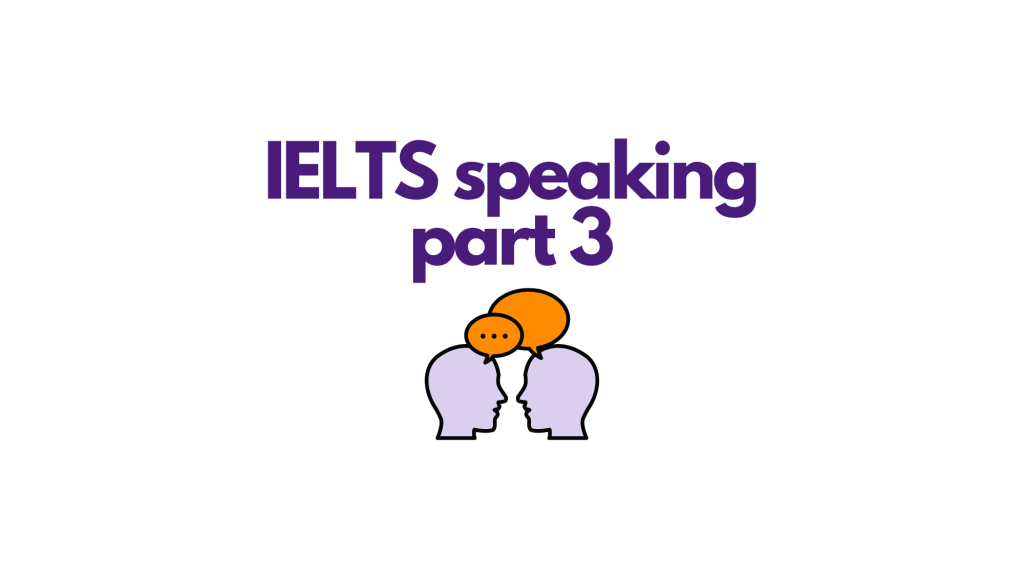Each part of IELTS has its own unique challenges. IELTS Speaking Part 3 is the final part of the speaking test, and it is designed to test your ability to discuss abstract ideas and express opinions on a wide range of topics. Here are some tips to help you prepare for IELTS Speaking Part 3:
Understand the format
In IELTS Speaking Part 3, you will be asked a series of follow-up questions related to the topic that was discussed in Part 2. These questions will test your ability to discuss abstract ideas, express opinions, and provide examples to support your arguments. You will have four to five minutes to answer the questions, so use this time wisely.
Use appropriate vocabulary
To do well in IELTS Speaking Part 3, you need to use a wide range of vocabulary. Use academic words as well as phrases to express your ideas clearly and accurately. Avoid using slang or informal language. Practice using complex vocabulary words before the exam, so you can use them naturally in your answers.
Develop your critical thinking skills
In IELTS Speaking Part 3, you have to provide opinions and arguments on a range of topics. Therefore you need to develop your critical thinking skills. Learn to analyze a topic, identify key points, and provide well-reasoned arguments to support your opinions. In addition to this use examples and evidence to support your arguments. However avoid giving one-word answers.
Be confident and fluent
Confidence is key in IELTS Speaking Part 3. Try to speak fluently and confidently, even if you’re not sure about the answer. Use fillers like “let me think about that” or “that’s an interesting question” to give yourself time to think. Speak at a natural pace as well as use appropriate intonation to convey your meaning.
Practice, practice, practice
The more you practice, the better you will do on the exam. Practice answering a range of questions related to different topics. Focus on developing your critical thinking skills and using a wide range of vocabulary. Record yourself and listen back to identify areas for improvement.
Example topics
Here are some example topics you might be asked to discuss in IELTS Speaking Part 3, along with some tips on how to answer them:
Topic: Education
Question: What do you think are the advantages and disadvantages of homeschooling?
Tips: Start by giving a brief introduction to the topic. Then, provide two or three advantages and disadvantages of homeschooling. Use examples and evidence to support your arguments, and provide a balanced perspective.
Topic: Technology
Question: Do you think technology is making people more isolated?
Tips: Start by giving a brief introduction to the topic. Secondly, provide your opinion on the topic. Use examples and evidence to support your arguments. Lastly provide a balanced perspective.
Topic: Society
Question: How has globalization affected culture?
Tips: Start by giving a brief introduction to the topic. Then, provide two or three ways in which globalization has affected culture. Use examples and evidence to support your arguments, and provide a balanced perspective.
In conclusion, IELTS Speaking Part 3 is designed to test your ability to discuss abstract ideas, express opinions, and provide arguments on a wide range of topics. Use these tips to help you prepare for the exam, and practice regularly to improve your critical thinking skills as well as vocabulary. Good luck with your IELTS exam!
Read Also: Tips for Acing IELTS Speaking Part 1 and Speaking Part 2

Comments